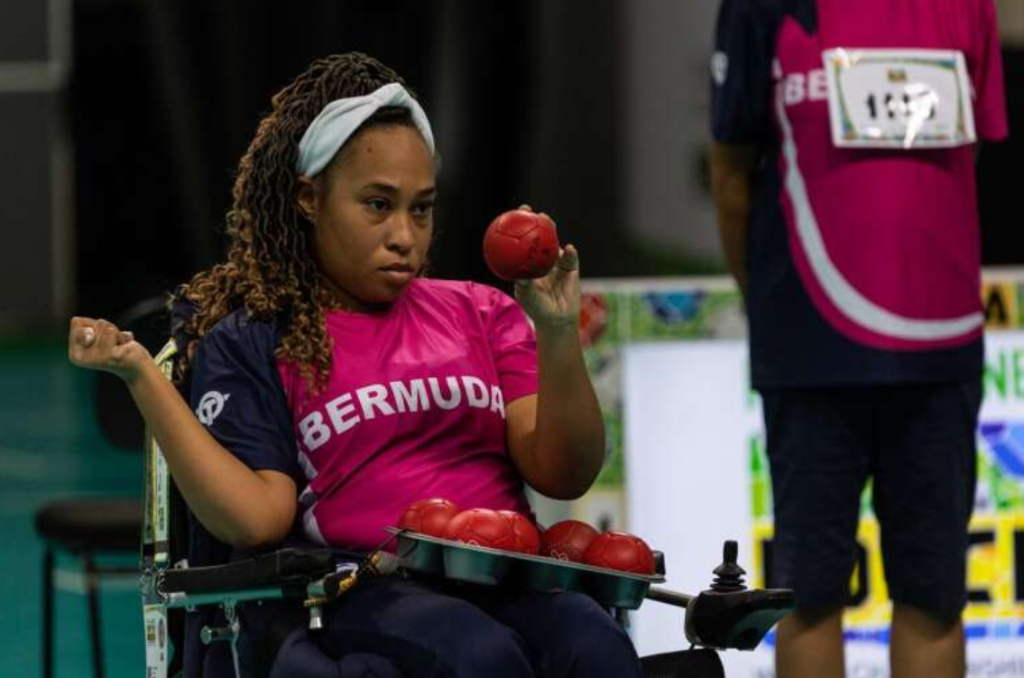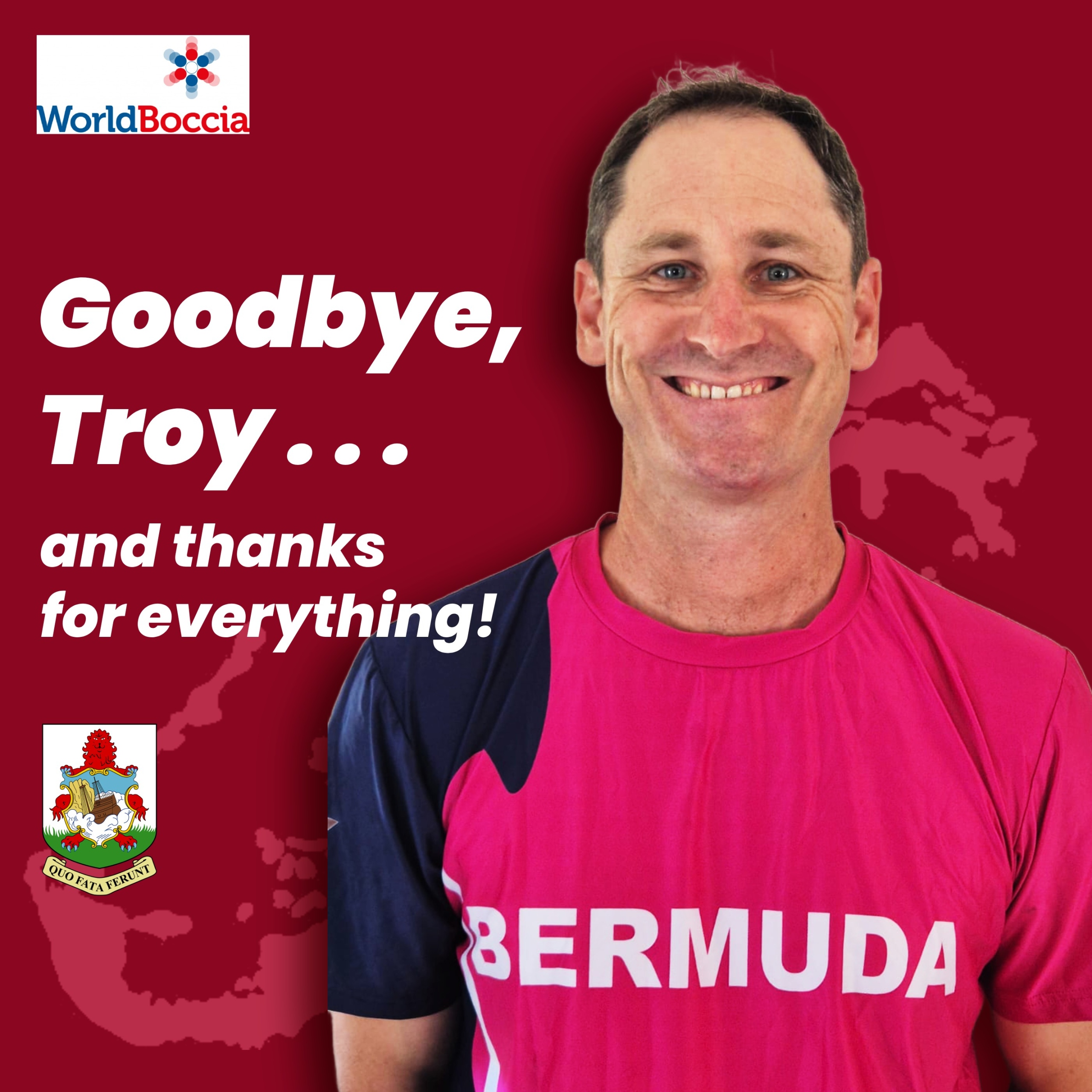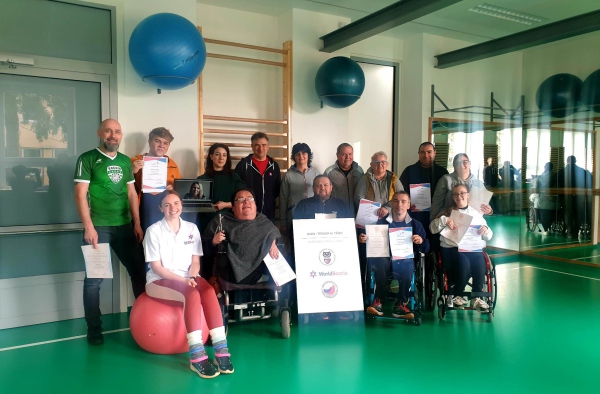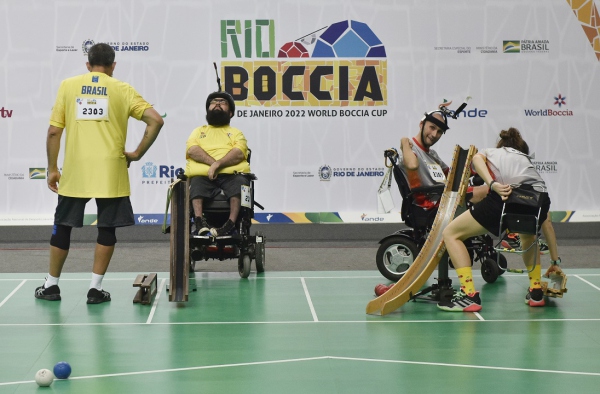By Graham Thomas
The man affectionately dubbed “Mr. Boccia” in Bermuda is stepping away from the sport, urging that the difficulties smaller nations face must not be overlooked.
Troy Farnsworth has worn nearly every hat imaginable at Boccia Bermuda – serving as a coach, administrator, and board member – but has now chosen to retire from his involvement in order to prioritise his family.
His 13-year contribution leaves behind a dedicated and recognised Bermudian boccia team that competes on the world stage.
Among them is Yushae DeSilva-Andrade, who reached the semi-finals of the women’s individual BC1 event at the Paris 2024 Paralympic Games, where she was ultimately defeated by France’s Aurelie Aubert, the eventual gold medalist.
DeSilva-Andrade currently holds the title of Bermuda’s Female Athlete of the Year.
She was one of only two athletes representing Bermuda at the Paris Paralympics, alongside wheelchair racer Jessica Cooper Lewis.
This level of achievement marks a significant transformation from when Farnsworth, originally from Sydney, Australia, first arrived on the island in 2006.
“I was introduced to boccia through my background as an occupational therapist and then working for a charity, WindReach,” he says.
“They had a bunch of people who were playing boccia, but only recreationally. They said they were interested in going to a competition, so I got to work.
“I found a tournament in Montreal, so I took a team of six athletes from Bermuda to our first international competition.
“I didn’t know much about the sport, but I thought going there would be a good way to learn.
“What I saw really shocked me. It was a very high level of competition and I realised if we were going to do this properly, we had to take it more seriously and really lift our game.”

That first event in 2012 was a wake-up call, and from then on Farnsworth dedicated himself to elevating the sport’s standards on the North Atlantic island, while simultaneously establishing the infrastructure needed to allow gifted athletes to thrive.
In 2014, he joined a small team to create Boccia Bermuda – a fully volunteer-run organisation led by a modest board of directors.
Even with a population of just over 60,000 and constrained funding, “Mr. Boccia” played a key role in nurturing a pool of high-level competitors who have proudly worn Bermuda’s colors on the international stage.
Among them, Omar Hayward is currently ranked 19th in the men’s BC1 division, and DeSilva-Andrade is ranked third in the world in the women’s BC1 category.
“For smaller countries, it is a case of getting more recreational players into competition and then once you get them to that first tournament, they learn from being there,” says Farnsworth, a former Australian Rules football player.
“The sport of boccia is growing rapidly around the world and it’s becoming more technical and more scientific.”
Keeping pace with advancements in equipment, coaching methods, performance analysis, and sports science demands funding – and this is where the Boccia Bermuda co-founder expresses concern that a few affluent nations could outpace the rest.
“You have to make good decisions and work hard as a small country and there is no doubt that the sport has grown tremendously, and competitive opportunities have increased dramatically.
“World Boccia have done a phenomenal job since I have been involved with the sport and I have seen the standard of play get better every year.
“But the issue facing small countries now is cost. That can be really challenging because the more competitions you go to, the more the costs rise.
“We get a little bit of money from the government, and we have done well to raise money from corporate sponsorship.
“But countries like Great Britain, Canada, Brazil – they have high performance programmes. Small countries can’t really afford those, so the sport has to guard against the gap growing between the richer countries and the ones with smaller budgets.
“How we manage that is difficult, but for the sport to fully grow across the world, smaller nations have to be assisted.”
Looking ahead, Boccia Bermuda has already begun preparing for the journey toward the 2028 Paralympic Games in Los Angeles, with one of the upcoming qualifying events to be held in the nearby United States.
Farnsworth sees the geographical closeness as a potential benefit for his country.
“Our boccia athletes have definitely got their eyes on trying to make it to LA. It’s not as difficult for us to reach as some places and so it’s a big goal.
“I was lucky enough to be involved at two Paralympic Games – in Rio in 2016 and then Paris last year – and they were incredible experiences.
“I am always trying to educate people about boccia and that is my main message. It’s about the sport, this is elite sport, and the Paralympics is the pinnacle.
“I shall miss being involved.”




